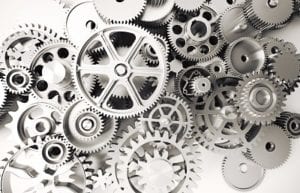Is addiction a personal choice or is there an actual science behind it? Addiction is referred to as a disease. That is because there is a scientific process involved in becoming addicted to a drug or alcohol. It goes beyond just deciding whether you want to use or to stay sober.
The neuroscience behind addiction makes having an option almost impossible. The choice comes in getting help to overcome the addiction and the struggle it takes to get there.
What is Addiction?
The National Institute on Drug Abuse defines addiction as the inability to stop using1. This definition is a bit simplistic, but it gets to the root of the problem. A person addicted cannot stop on their own, even when they know the drug is harmful to them. This is not a choice; it is biology.
Addiction is a brain disease, because drug use changes the way the brain works. It is similar to the way obesity changes the body’s ability to manage insulin. There are some personal choices involved in drug use, but at some point, the choice becomes a compulsion. That is an indicator that the disease is progressing.
How Does Addiction Affect the Brain?
This is an area of study not clearly understood, according to MedlinePlus2. What we do know is that it starts with the reward center in the brain – this where dopamine is released to create a feeling of pleasure. High levels of dopamine in the system physically change brain neurons.
Over time, you develop sensitivity to the drug. You require more of it to get that same release of dopamine and feeling of pleasure. That is why you hear addicts describe the first high as being the best. That build up of tolerance to the drug leaves them chasing the high, always trying to experience that first one again even when it remains out of reach.
A person initially decides to pick up a pipe or to take a pill, but over time, that choice changes into something their brain can no longer control. That is addiction.
The Science of Recovery
Figuring out that addiction is based on a scientific process has led to vast improvements in the science of recovery. If addiction is a chronic disease, then the goal is to manage it. Drug treatment centers teach those addicted and their families how to fight the compulsion. This is done with a tailored program that addresses the recovery process for drug addiction.
- The medical treatment helps to reduce the cravings and promotes healing.
- The psychiatric treatment deals with behaviors that led to the addiction and the ones that developed as a result of it.
- The social approach helps create an environment that allows the person to manage life without using. This is done by developing daily routines and a support system to maintain sobriety.
Addiction is a Chronic Disease
Addiction is a chronic disease, which means it takes a lifetime of management. This means relapses can happen. Therefore addiction is comparable to other chronic diseases such as diabetes or hypertension3. This is why professional treatment at a recovery center is so critical. The staff teaches you how to sustain a life without drugs and what to do to avoid relapsing.
Through scientific discovery, it is clear that drug addiction is not a sign of weakness or lack of self-control. It is a brain disease, but one that is treatable. That starts with contacting a treatment center.
References:
- The National Institute on Drug Abuse (NIDA), “What is Addiction?,”<
- MedlinePlus, “The Science of Addiction: Drugs, Brains, and Behavior,”Spring 2007,<
- The National Institute on Durg Abuse, “Drugs, Brains, and Behavior: The Science of Addiction,” July 2014,<
- MedlinePlus, “The Science of Addiction: Drugs, Brains, and Behavior,”Spring 2007,<











